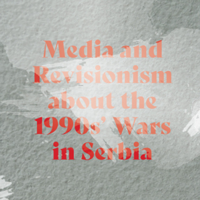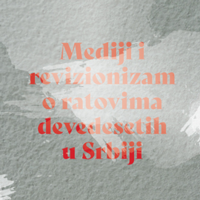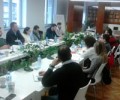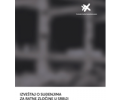Media and Revisionism about the 1990s’ Wars in Serbia
 Following the regime change in 2012, the new authoritarian regime under the Serbian Progressive Party (SNS) put memory politics high on its political agenda. The revisionist history of the 90s’ wars now constitutes the primary source of its political legitimization. At the same time, the new government established a firm grip over media, leaving a few independent outlets still critical of the new memory politics. A majority of mainstream media operate in symbiosis with the regime, actively contributing to the new revisionist narrative. These narratives are further supported and accelerated in tabloid and alternative media, offering an even more radicalized version of the past. In such a mediascape, actors working on critical memory are limited to a few independent media outlets. At the same time, they are under constant threat from the regime and tabloids alike.
Following the regime change in 2012, the new authoritarian regime under the Serbian Progressive Party (SNS) put memory politics high on its political agenda. The revisionist history of the 90s’ wars now constitutes the primary source of its political legitimization. At the same time, the new government established a firm grip over media, leaving a few independent outlets still critical of the new memory politics. A majority of mainstream media operate in symbiosis with the regime, actively contributing to the new revisionist narrative. These narratives are further supported and accelerated in tabloid and alternative media, offering an even more radicalized version of the past. In such a mediascape, actors working on critical memory are limited to a few independent media outlets. At the same time, they are under constant threat from the regime and tabloids alike.
The report analyzes historical revisionism about the 1990s’ wars in Serbian media, from the end of Milošević’s regime in 2000 until today. It distinguishes between two phases in the mediatization of the past: (i) the period until 2012, when the media contested the war narrative albeit within the ‘spiral of silence’ media model, where dramatic discoveries about the crimes fell into a deafening silence; (ii) the period after 2012 with the rise of revisionist narratives under the new authoritarian government, consolidated within the statecontrolled media and ever-growing tabloid press. The new revisionist history, dominant in the second period, builds on a heroic memory of the Serbian army serving as a source of national pride. At the level of discursive strategies, it employs a reversal of perpetrators and victims, a revival of Serbian victimhood, and a rejection of any responsibility for the criminal past.
Media and Revisionism about the 1990s’ Wars in Serbia









